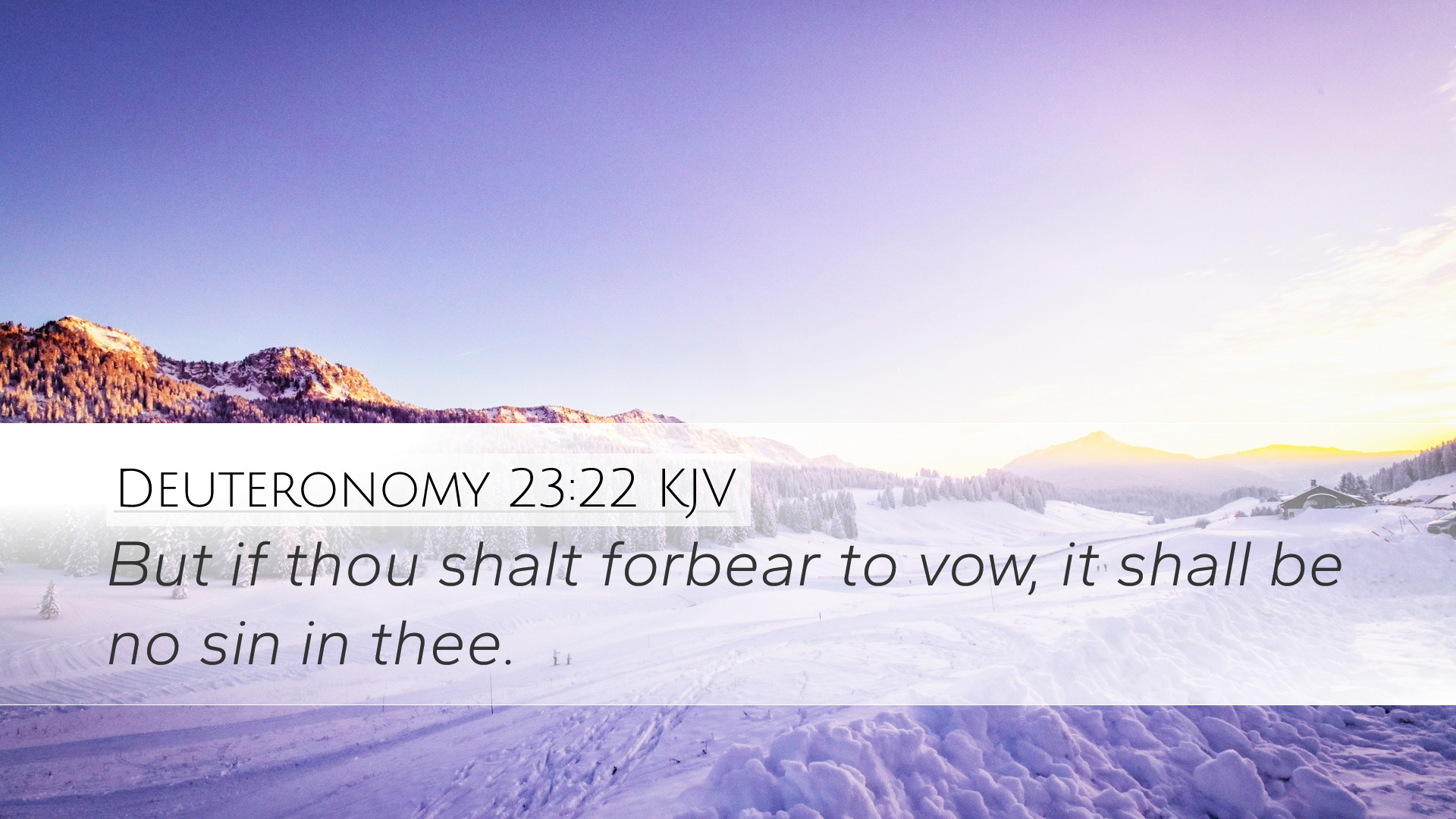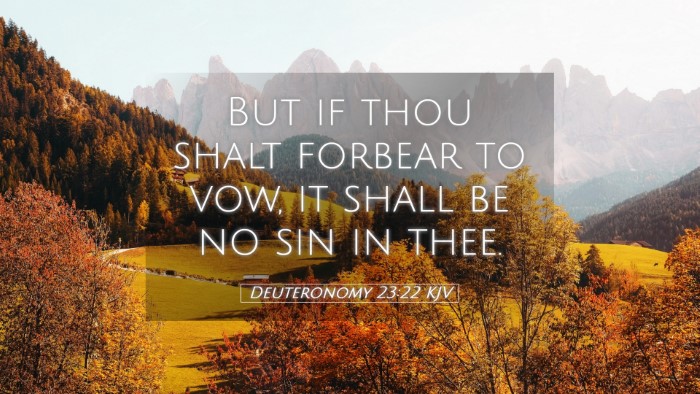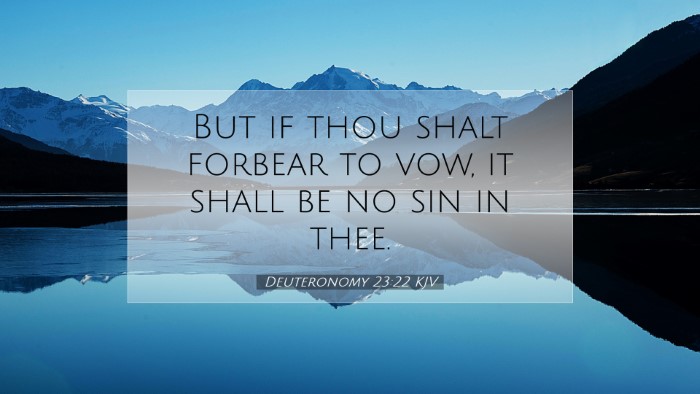Commentary on Deuteronomy 23:22
Verse Analysis: The verse Deuteronomy 23:22 states: “But if thou shalt forbear to vow, it shall be no sin in thee.” This directive highlights the importance of vows in the life of the Israelite community, yet it also opens a dialogue on the nature of voluntary commitments to God.
Contextual Considerations
The broader chapter addresses various moral and social obligations of the Israelites, emphasizing purity and holiness in both personal conduct and community relations. Vows, in this context, are viewed not only as commitments to God but also as reflections of one's integrity and responsibility to the community.
The Significance of Vows
Matthew Henry's Insights: Henry notes that vows are significant in a believer’s life, serving as expressions of faith and devotion. In his commentary, he underscores that while taking a vow is a serious matter, the decision to vow must be approached with careful consideration. He posits that a premature or insincere vow can lead to adverse consequences, suggesting that individuals should not feel compelled to make vows impulsively.
Albert Barnes' Perspective: Barnes emphasizes that while vows are commendable, the absence of a vow is not sinful. He elaborates that God desires genuine worship over mere ritual, highlighting that God values a heart aligned with His will. The act of being compelled to vow may stem from external pressures rather than internal conviction, which can lead to hypocrisy rather than authenticity in worship.
Practical Implications for Believers
Adam Clarke's Viewpoint: Clarke discusses the implications of this verse concerning the community's moral fiber. He points out that individuals should weigh the seriousness of their commitments, recognizing that whilst a vow is a privilege, it is also a heavy obligation. Clarke articulates that the absence of a vow does not equate to spiritual deficiency; rather, spiritual authenticity is paramount. This sentiment encourages believers to cultivate a heart ready to serve without the confines of formal vows.
Historical and Cultural Context
The cultural backdrop of ancient Israel placed significant emphasis on oaths and commitments. Vows were deeply interwoven into the fabric of community worship and individual responsibility. When an individual made a vow, it was understood as a binding contract with God—a relic of divine interaction. Understanding this context is crucial; it elucidates why Moses, in delivering this legislation, sought to establish a balanced view of vows. He wished to guard against the trivialization of sacred commitments while promoting an authentic relationship with God.
Theological Reflections
This verse invites theological reflection on the nature of human promises before God. The authors stimulate a discourse on how one's vows reflect their understanding of God's character. If vows are seen as burdensome, it may reflect an inadequate perspective of God’s grace. Conversely, recognizing God’s desire for genuine relationship over ritualistic performance can foster a more profound engagement with spiritual commitments.
Conclusion
Deuteronomy 23:22 provides not only a regulation concerning vows but also a rich theological and ethical framework that encourages believers to engage thoughtfully and prayerfully with their commitments. The combined insights from Henry, Barnes, and Clarke affirm a balanced view: the essence of our relationship with God rests not solely on the vows we make but on the steadfastness of our faith and the sincerity of our hearts.


